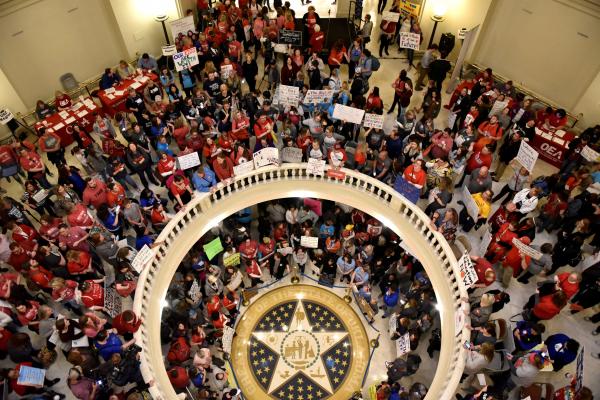Apr 5, 2018
On Monday, April 2 the teacher walkout in Oklahoma began. How did we get to this point and what role does faith play in what is going on here?
Read the Full Article

Already a subscriber? Login

On Monday, April 2 the teacher walkout in Oklahoma began. How did we get to this point and what role does faith play in what is going on here?
